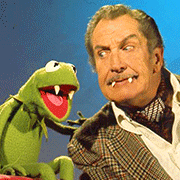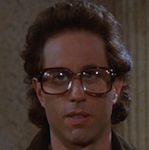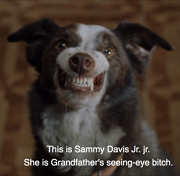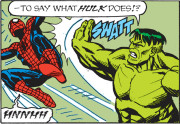|
Real motherfuckers appreciate them both!
|
|
|
|

|
| # ? May 17, 2024 19:40 |
|
penismightier posted:Why? True Heart Susie is the best Griffith film.
|
|
|
|
Broken Blossoms is my favorite of Griffith's films so far.
|
|
|
|
DNS posted:I'm not sure I find this convincing. Maybe it's true in America, but Intolerance has been held in ridiculously high esteem in Europe for decades. It was Intolerance that made the inaugural S&S poll, not Birth of a Nation. I agree that Intolerance is a better film. I agree that The Birth of a Nation is absolutely hateful. What I'm saying is that as question of purely historical fact The Birth of a Nation is an important film, and it's a film that people are still arguing about roughly a hundred years after it was made. As I said, it's a film that people can and should see today, for reasons other than accepting its propaganda message. twistedmentat posted:The back of the DVD also give us the wonderful quote from Woodrow Wilson "Its like history written with lightning!" which is clearly trying to make Birth of a Nation seem like a historically accurate film. Again, I'm not trying to defend either the language of the blurb or the message of the film. But I also don't believe that rejecting the message of the film entails ascribing ill intent to the people publishing the DVD, any more than we can ascribe ill intent to all the other misleading blurbs on all the other DVD covers out there, which is, roughly, all of them. And I say this as someone who will probably argue more strenuously about political messages in film more than anyone else in CineD except SMG. Consider this snippet from amazon's product listing for Dirty Harry (1971): lifted from amazon, who attributes it to Jim Emerson posted:Whether or not you can sympathize with its fascistic-vigilante approach to law enforcement, Dirty Harry (directed by star Clint Eastwood's longtime friend and directorial mentor, Don Siegel) is one hell of a cop thriller. The movie makes evocative use of its San Francisco locations as cop Harry Callahan (Eastwood) tracks the elusive "Scorpio killer" who has been terrorizing the city by the Bay. As the psychopath's trail grows hotter, Harry becomes increasingly impatient and intolerant of the frustrating obstacles (departmental red tape, individuals' civil rights) that he feels are keeping him from doing his job. A characteristically taut and tense piece of filmmaking from Siegel (Invasion of the Body Snatchers, The Shootist, Escape from Alcatraz), it also remains a fascinating slice of American pop culture. It was a big hit (followed by four sequels) that obviously reflected--or exploited--the almost obsessive or paranoid fears and frustrations many Americans felt about crime in the streets. At a time when "law and order" was a familiar slogan for political candidates, Harry Callahan may have represented neither, but from his point of view his job was simple: stop criminals. To him that end justified any means he deemed necessary.
|
|
|
|
I don't want to harp on a small point here, but I can't fathom any way shape or form in which Intolerance is a MORE IMPORTANT film than Birth of a Nation.
|
|
|
|
penismightier posted:I don't want to harp on a small point here, but I can't fathom any way shape or form in which Intolerance is a MORE IMPORTANT film than Birth of a Nation. Well, true. It's great in a way that not many people imitated, because it was just that ambitious, where Birth of a Nation more or less set the template for how epic movies work.
|
|
|
|
No, Birth of a Nation set the template for how MOVIES work. Period.
|
|
|
|
penismightier posted:No, Birth of a Nation set the template for how MOVIES work. Period. Not just related to this but putting the point that I've been making about it in slightly different terms: if it was a film that wasn't available on DVD and so on, it's absolutely a film that any serious film scholar---and I'm talking about people who just buy a lot of stuff from Criterion and participate in internet discussion of film beyond contemporary Hollywood stuff and so on, and not just people writing theses in film school or whatever---would want to be available. And the fact that it has consistently remained available despite it's reprehensible politics and even when there wasn't as big of an audience for early silent films, and before the current expectation that films are going to be available more or less always and in perpetuity (on demand and at home and in whatever format you happen to want to watch them in) speaks to how seriously the film has been regarded. Edit: And I wonder if anyone who's objecting/complaining/whatever about the propaganda in Griffiths' The Birth of a Nation feels the same way about, say, Eisenstein's Potemkin (1925). SubG fucked around with this message at 02:24 on Dec 5, 2011 |
|
|
|
Yeah, I agree. I've always been fascinated with Griffith and have made an effort see even his later stuff like The Struggle, and even though Birth of a Nation is downright vile at times, nothing else comes close to as contextually important. Birth of a Nation codified film grammar in a millennially important way. He did to film what Dante did to the Italian language, and it's downright disingenuous to pretend it cohered anywhere other than Birth of a Nation. It's simply untrue to say that Intolerance or, as I've heard people claim, earlier epics like Cabiria were the key text. That's a cheap way to avoid controversy. Like it or not, cinema was born out of hate and prejudice. And let's not forget that Triumph of the Will is goddamn important too.
|
|
|
|
SubG posted:I'd rephrase that slightly to say that it's a template for what's sometimes called the institutional mode of representation in film, but I agree. Well, this is easily worse politically. Potemkin's sort of like Gone With The Wind, glorifying something while ignoring its problematic aspects, while Birth of a Nation straight up says "we shouldn't have given black people the vote." It's closer to Triumph of the Will. But you're right, that is that important.
|
|
|
|
penismightier posted:And let's not forget that Triumph of the Will is goddamn important too. I assume that this didn't happen with Eistenstein largely because in that time period the Cold War was seen to be coming to an end---the Berlin Wall falling in 1989, the Soviet Union formally broken up in 1991, and so on---and so Bolshevik propaganda could suddenly be seen as quaint and dated instead of as a pernicious threat (as it had up to that point), unlike racism or Nazism.
|
|
|
|
That liberal guilt frustrates me because ignoring those two is more dangerous than studying them, because it's important to learn how much audiences can be led astray by stirring images and a nice sappy story. We all become stupid when we sit in a theater seat, and if seeing how Griffith used an exciting story to spread hate in 1914 will make someone a little more leery of their response to Taken or Black Hawk Down, Birth of a Nation is finally doing some social good in the world.
|
|
|
|
Maxwell Lord posted:Well, this is easily worse politically. Potemkin's sort of like Gone With The Wind, glorifying something while ignoring its problematic aspects, while Birth of a Nation straight up says "we shouldn't have given black people the vote." It's closer to Triumph of the Will. But you're right, that is that important. SubG posted:I assume that this didn't happen with Eistenstein largely because in that time period the Cold War was seen to be coming to an end---the Berlin Wall falling in 1989, the Soviet Union formally broken up in 1991, and so on---and so Bolshevik propaganda could suddenly be seen as quaint and dated instead of as a pernicious threat (as it had up to that point), unlike racism or Nazism. penismightier posted:That liberal guilt frustrates me because ignoring those two is more dangerous than studying them, because it's important to learn how much audiences can be led astray by stirring images and a nice sappy story.
|
|
|
|
Peaceful Anarchy posted:I've always seen the reevaluation of Birth of A Nation vs. Intolerance, and Triumph vs. Olympia to be one of artistic merit not historical importance. If you were to poll the average person Birth of a Nation and Triumph of the Will would wipe the floor with their counterparts in name recognition. I don't think anyone would deny their cultural impact is much greater. I don't think it's some liberal guilt to say they're inferior works of art and less worthy of attention as such. They are certainly worthy of attention from a historical and sociological perspective, though. I get this, though personally I think Intolerance is hardly more artistically significant than Birth of a Nation (it is so loving BORING). Isn't it hard to separate the two concepts, though? Silent film in particular is usually spoken of holistically, and if there's one film that should be emblematic of the birth of feature-length film, it's gotta be BoaN. I'm more flexible with Olympia/Triumph of the Will.
|
|
|
|
penismightier posted:I get this, though personally I think Intolerance is hardly more artistically significant than Birth of a Nation (it is so loving BORING). Isn't it hard to separate the two concepts, though? Of course any further discussion would require contextualizing the film and you'd have to mention BoaN, but still.
|
|
|
|
I've seen it said many times (usually in SHAMEFUL) that one should not watch Wayne in The Searchers without a plentiful helping of his earlier offerings. Can this be said of any other actor with a long career and a defining film? Does it hinge more on the character or the film itself?
|
|
|
|
Does anyone else think that Carlito's Way is a better movie if you skip the first 5 minutes? The movie starts at the end, then flashsback and the rest of the movie leads up to the scene that starts the movie. I personally think it works better if you don't know how it's going to turn out.
|
|
|
|
|
Peaceful Anarchy posted:
Alexander Nevsky, maybe? Zogo posted:I've seen it said many times (usually in SHAMEFUL) that one should not watch Wayne in The Searchers without a plentiful helping of his earlier offerings. Can this be said of any other actor with a long career and a defining film? Does it hinge more on the character or the film itself? Henry Fonda's role in Once Upon a Time in America has significantly more impact if you've seen his earlier work and think of him as a all around great person. But it's not the same due to Fonda not having the western link. Clint Eastwood in Unforgiven would be another option, but his link to westerns, while stronger than Fonda's, is still not at Wayne's level.
|
|
|
|
Armyman25 posted:Does anyone else think that Carlito's Way is a better movie if you skip the first 5 minutes? Maybe - But I think the flick is so engaging, and sucks you into its story so well that by the time you reach the end you've almost forgotten about that first scene anyway. That chase sequence is exasperating, and leaves you no time to think about anything that came before. You're completely in the moment - or at least I am. There's an argument to be made that showing you how it all ends right from the get-go takes some of the sting out of the ending. That it makes it easier to take when it actually happens because you've already prepared yourself mentally for it - You don't feel betrayed. But to an extent I feel like knowing how it's gonna turn out actually makes it feel more tragic, because then even when things are looking bright, they carry the weight of that knowledge of how things will end.
|
|
|
|
mastershakeman posted:Henry Fonda's role in Once Upon a Time in America has significantly more impact if you've seen his earlier work and think of him as a all around great person. But it's not the same due to Fonda not having the western link. Clint Eastwood in Unforgiven would be another option, but his link to westerns, while stronger than Fonda's, is still not at Wayne's level. I'd seen him in a couple of films before Once Upon a Time in the West (what you meant heh). It was a far cry from his performance in On Golden Pond. I've seen a lot of the Eastwood westerns. I guess it was a big jump from Pale Rider to Unforgiven.
|
|
|
|
It's not quite on the same level, but with a bit of career knowledge, the casting of Black Swan is brilliant. Obviously Portman always gets criticized for being passionless in films, and Kunis always seems untouchable. But further than that, Barbara Hershey's story is basically the same as her character - she could've been a great star but just never got the right part, and Winona Ryder, like her character, was recently usurped as the cute little starlet.
|
|
|
|
penismightier posted:It's not quite on the same level, but with a bit of career knowledge, the casting of Black Swan is brilliant. This is so eerie, because this is what made me think of Showgirls in the first place when watching Black Swan. The casting of Gina Gershon is awfully similar and almost comes off like stunt-casting.
|
|
|
|
What do films use when they want to portray marijuana, both in the smoking and in the buds themselves (if they aren't using the same thing for both)?
Detective Thompson fucked around with this message at 05:32 on Dec 13, 2011 |
|
|
|
Detective Thompson posted:What do films use when they want to portray marijuana, both in the smoking and in the buds themselves (if they aren't using the same thing for both)? That's actually a pretty good question. For the smoking itself I imagine they use herbal tobacco, but for buds I really don't have a clue. Unactivated hemp perhaps? (Or whatever it's called) 
|
|
|
|
Trump posted:That's actually a pretty good question. For the smoking itself I imagine they use herbal tobacco, but for buds I really don't have a clue. Unactivated hemp perhaps? (Or whatever it's called) I don't know about the bud, but I'm pretty sure you're right about the herbal tobacco. I seem to remember an interview or something with Seth Rogan where he mentioned that it was the same herbal poo poo they sometimes sell at head shops, and that it tastes terrible.
|
|
|
|
Didn't a lot of movies in the 70s use real pot? I know Easy Rider did, with hilarious results from Henry Fonda. Or is it Peter, I never can keep them straight. I got to read the entire Last Action Hero article from Empire last month, rather than skimming it at work, and It's really fascinating. It seems like a jumbled mess because of the whole too many cooks adage. Went from being a promising script from some first timers, to a experienced writer in Shane Black (he was the guy with the grenade launcher in Predator right?), then to way too many people that took what could have been a good sendup of the whole genre, into, well, what we got. I Guess I can understand why people do like the film, because they can see that germ of an idea. Are there any other movies that have really fascinating stories on why they became a ,disaster? I've read all about Cleopatra, and its madness, but there has to be other films that go from good idea of "wtf?"
|
|
|
|
twistedmentat posted:Are there any other movies that have really fascinating stories on why they became a ,disaster? I've read all about Cleopatra, and its madness, but there has to be other films that go from good idea of "wtf?"
|
|
|
|
Detective Thompson posted:What do films use when they want to portray marijuana, both in the smoking and in the buds themselves (if they aren't using the same thing for both)? For the buds itself, probably something like this.  Those are pedicularis densiflora, or indian warrior buds. They're quite smokable too.
|
|
|
|
twistedmentat posted:Didn't a lot of movies in the 70s use real pot? I know Easy Rider did, with hilarious results from Henry Fonda. Or is it Peter, I never can keep them straight. Peter.
|
|
|
|
I remember reading something about what they use in Weeds, it's something like what's posted above but I'll be damned if I can remember it. The actors took to smoking it offset because it is pleasant, apparently. To supplement this non-answer, I know that during Evil Dead they were going to be smoking pot during the "listening to the tape" scene, but they used real weed and the actors got "unruly."
|
|
|
|
twistedmentat posted:
The Island of Dr Moreau is pretty  http://en.wikipedia.org/wiki/The_Island_of_Dr._Moreau_(1996_film)#Production
|
|
|
|
big business sloth posted:I remember reading something about what they use in Weeds, it's something like what's posted above but I'll be damned if I can remember it. The actors took to smoking it offset because it is pleasant, apparently. In Platoon, the actors all smoked real weed before the weed-smoking scenes, but then by the time everything was set up for shooting they were all tired and burnt out so it didn't work too well.
|
|
|
|
On a related, but lamer note, when smoking normal cigarettes on camera, how often is it a regular tobacco cigarette? I know this sounds stupid, but seeing as how much smoking has disappeared from modern American cinema, and how there is in general a huge anti-smoking movement in popular culture, I often find it wierd seeing it on screen. I guess seeing all these beautiful people in all their glory doesn't synch up in my brain to the image of smoking and my mind just says "There's no way Leonardo DeCaprio smokes in real life. He's too pretty for that."
|
|
|
|
I know in Mad Men the actors all smoke herbal cigarettes due, in part, to California law (no smoking in the workplace).
|
|
|
|
The Cigarette smoking man also smoked herbal
|
|
|
|
bobkatt013 posted:The Cigarette smoking man also smoked herbal I heard that originally he didn't, but when he became in danger of becoming addicted again, he switched to herbal. I never checked a source for this.
|
|
|
|
Snak posted:I heard that originally he didn't, but when he became in danger of becoming addicted again, he switched to herbal. I never checked a source for this. Ya you are right according to wikipedia quote:Davis actually quit smoking in the 1970s; when The X-Files started up, he was given a choice between herbal cigarettes and actual cigarettes. At first he chose the actual cigarettes, but switched to herbal shortly after for fear of becoming addicted again while playing the Cigarette Smoking Man.
|
|
|
|
twistedmentat posted:Didn't a lot of movies in the 70s use real pot? I know Easy Rider did, with hilarious results from Henry Fonda. Or is it Peter, I never can keep them straight. A documentary on a film that had Murphy's Law to the full extent was Lost in La Mancha. It's about Terry Gilliams aborted attempt to make a Don Quixote movie which was beset with so many problems that he finally had to give up on the entire production. Even though it's a commentary, I still like the one that Tom Clancy did for Sum of all Fears where he ripped into the director for 2 hours over his adaptation to the point where they wouldn't even speak to each other anymore. You know that he's not very satisfied with the film when his introductory statement is "I'm Tom Clancy, the guy who wrote the book they ignored."
|
|
|
|
I'm watching Stand By Me, now, anyone else think it looks like Corey Feldman is wearing 3D glasses in it?
|
|
|
|

|
| # ? May 17, 2024 19:40 |
|
He looks like he's trying to be a hipster. Related, from IMdB quote:At the insistence of director Rob Reiner (an avid non-smoker who campaigned for anti-smoking laws in California), the cigarettes smoked by the boys were made from cabbage leaves. Has anyone ever asked Wil Wheaton if he's at all disappointed now that he's an adult and doesn't sound like Richard Dreyfuss?
|
|
|

































